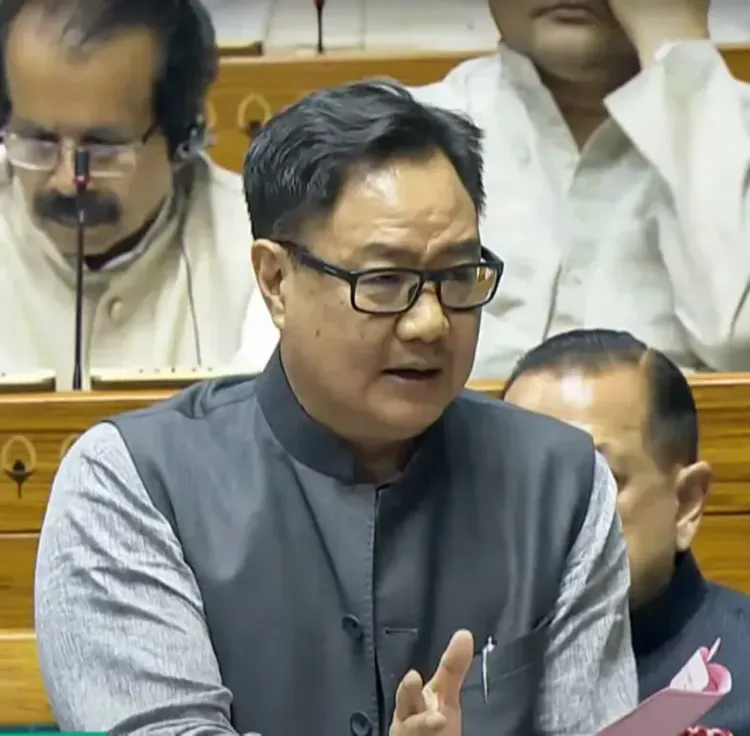Kiren Rijiju Announces Repeal of Restrictive Waqf Section 40

Synopsis
Key Takeaways
- Kiren Rijiju introduces the Waqf (Amendment) Bill, 2025.
- Section 40, deemed draconian, will be repealed.
- New provisions allow for appeals in higher courts.
- Bill aims to improve Waqf property management.
- Focus on transparency and technology incorporation.
New Delhi, April 2 (NationPress) Union Minister for Minority Affairs Kiren Rijiju announced on Wednesday that the Waqf (Amendment) Bill, 2025, aims to eliminate Section 40 of the 1995 Act, which grants boards authority over property management. Describing the section as the most draconian law, Rijiju stated that it will be abolished.
“It allowed Waqf Boards to claim any property as theirs. This will no longer be permissible,” he emphasized.
Section 40 permitted the Waqf Board to classify any property as Waqf. Once a property was designated as Waqf, ownership transferred from the individual to the board, making it nearly impossible to revoke. This irrevocability has sparked numerous conflicts, including the Bengaluru Eidgah ground dispute and the Surat Municipal Corporation building, which is claimed due to its historical use as a 'sarai' during the Mughal era.
Due to the contentious nature of Section 40, challenges could be brought before a Waqf Tribunal, whose rulings were final, leaving no recourse for the courts. This significant issue will be rectified in the new legislation once the amendments receive parliamentary approval.
The proposed amendments in the Bill allow for appeals to higher courts if parties are dissatisfied with the Waqf Tribunal's ruling. Appeals can be lodged in the high court within 90 days, and the district collector will authenticate registration applications.
The Union Minority Affairs Minister presented the Waqf (Amendment) Bill, 2025 in the Lok Sabha for review and approval, as recommended by a Joint Parliamentary Committee. The Bill aims to enhance Waqf property management, incorporate technology, tackle complexities, and ensure transparency.
After introducing the Waqf Amendment Bill, the Parliamentary Affairs Minister posed several questions: Given that India holds the largest Waqf properties globally, why haven't these been utilized for education, healthcare, skill development, or income-generating opportunities for underprivileged Muslims? What progress has been made in this area?
He stated, "If this government, led by PM Modi, is committed to improving the lives of impoverished Muslims, what is the objection?"
The minister remarked that railway infrastructure belongs to the nation, not exclusively to Indian Railways... Likewise, defense land, as the second-largest landholder, is designated for national security and military training. "How can that be compared to Waqf land? Many Waqf properties are now private properties," he added.









